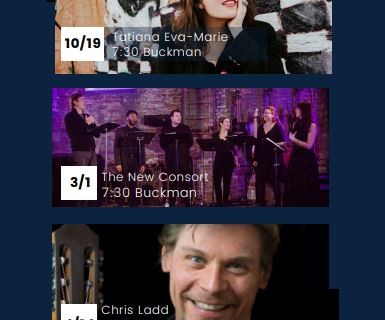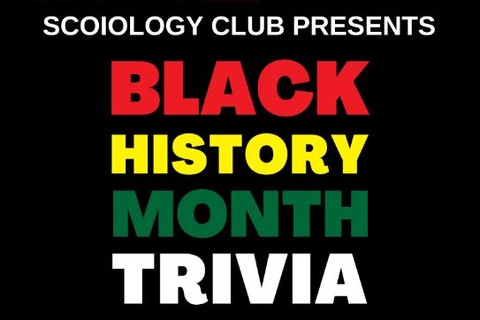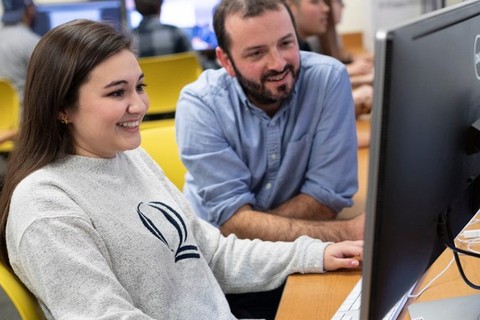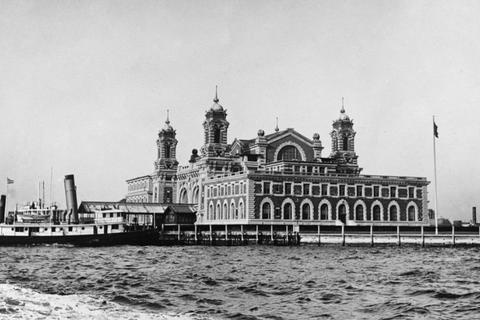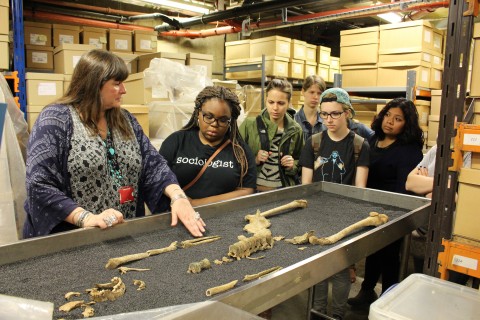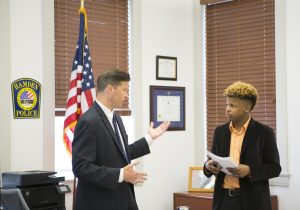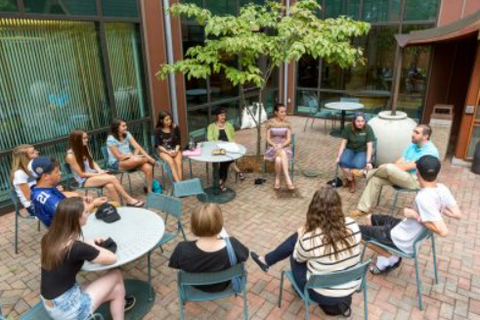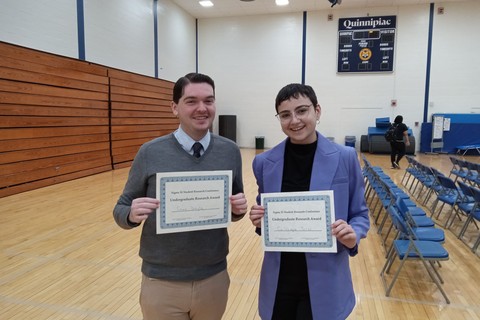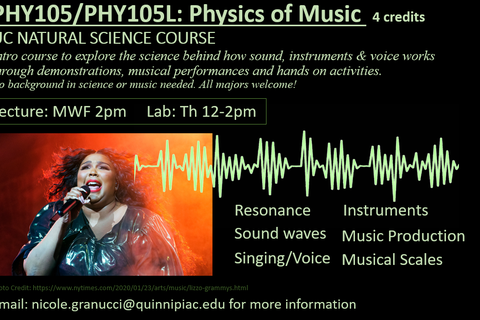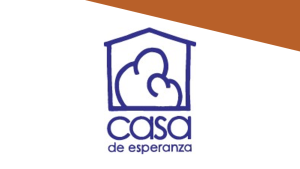New/First Year students should explore the links on the following three pages for information on the curriculum and how to register:
● Step 1: Understanding QU
● Step 2: Choosing your courses
● Step 3: Registering for classes and FAQs
Your first year is a time for exploration and engagement! Begin to think about your values, interests, and goals. In your first year at Quinnipiac, you should earn 30 credits, meet with your advisor at least once a semester, and earn a cumulative GPA of 2.0 or higher.
-
Get Connected to CAS360CAS360 is no ordinary website! It is your one-stop shop for all academic and career information. You will receive a weekly email from CAS360 that tells you about information sessions, applications deadlines, career events, exploration tools, career training, and news. You can customize the content you receive in that email by updating your “alerts.” Click on the “Login” link in the upper right corner, log in with your QU credentials, and then select “Alerts & Emails” and check off your areas of interest.
-
Career GoalsIt’s okay if you aren’t sure what you want to do as a career, or even if you aren’t sure what major you want to select! As you begin your classes, be sure to speak with QU faculty, academic advisors, and the director of Career Development about major and career options. Visit the Career Development page of this site and become familiar with the steps of the career development process-Explore, Prepare, Launch. Begin to build and develop your Personal Advisory Board to help you think through big decisions and thoughtfully consider different perspectives.
-
Values and InterestsCheck out our “What Can I Do With this Major?” website to begin examining connections between majors and careers. Consider using “MyNextMove.org” as a way to identify the knowledge, skills and abilities you need to pursue potential careers of interest. Use our alumni profiles to get a better sense of how previous CAS students have navigated their time here and found success.
-
Attend the Major/Minor FairConsidering changing your major? Want to declare a minor? Want to double major? Our University-wide major/minor fair in the fall (early October) is for ALL class years and ALL majors!
-
Ask QuestionsTalk to people you know about what they do for a living. Friends and family are a valuable resource! Ask juniors and seniors you encounter about their career plans and reflect on what is important to you in a career.
-
Create a ResumeYou never know when opportunity will come your way! Attend a Career Development workshop or use our resume writing guide to create your first college-level resume.
-
Get Involved!Campus groups and activities help you build marketable skills and become part of the QU community! Attend the QU Involvement Fair and consider participating in one extra-curricular activity. Write for a student publication, join student government, join an academic club… there are a lot of options! As you try out activities, reflect on what you’re learning from them and whether you’d like to continue with them (or try something different) in your sophomore year. Your ePortfolio is a great place for you to track your thoughts about your extracurricular involvement.
-
Attend a Career FairOur University-wide career fair in the fall is for ALL class years and ALL majors! Get a feel for what the event is like, the kinds of employers who attend, and how you should prepare. Approach a few employers and ask about what they do. Use the time to get comfortable.
-
Get to Know FacultyYour faculty are here to support you throughout your time as an undergraduate. We encourage you to get to know at least one faculty member in addition to your academic advisor. Tip: Use your professors’ office hours to introduce yourself and talk about why you’re taking their course. In the future, faculty can be a great source of recommendation letters for graduate school or references for employment.
-
Begin to assemble your Personal Advisory BoardWe have a number of resources to support you! Start to consider who might make up your Personal Advisory Board. You’ll have an assigned academic advisor, but advising isn’t only about academics! Think of the other folks on campus who can assist you whether it is in career development, academic coaches, faculty in your department, the Learning Commons, athletic coaches, student life staff, etc. The whole community is here to support you
-
Develop a Strong Relationship With Your Academic AdvisorTry to meet your academic advisor in the first six weeks you’re on campus, to say hello and talk about how you’re doing. Throughout your time at QU, you should aim to meet your academic advisor at least twice a semester, for course planning and selection for the coming semester, but also for general exploration and discussion of academic and co-curricular opportunities. Get into the habit of frequent meetings now and learn more about how our 360 Advising process works!


